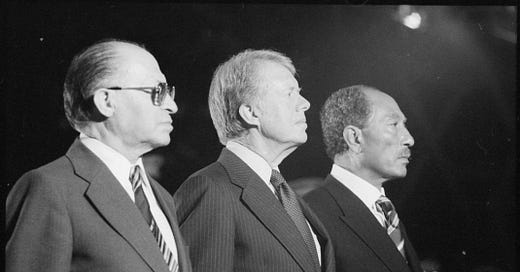As I’m sure most of you know by now, Jimmy Carter died yesterday at age 100. I’m at best a knowledgeable admirer of Carter’s, not an expert like my friend David Swartz, who called the 39th U.S. president “one of the most fascinating evangelical figures of modern times” in his obituary for Christianity Today. But having written about Carter off and on ov…
Keep reading with a 7-day free trial
Subscribe to The Pietist Schoolman to keep reading this post and get 7 days of free access to the full post archives.



